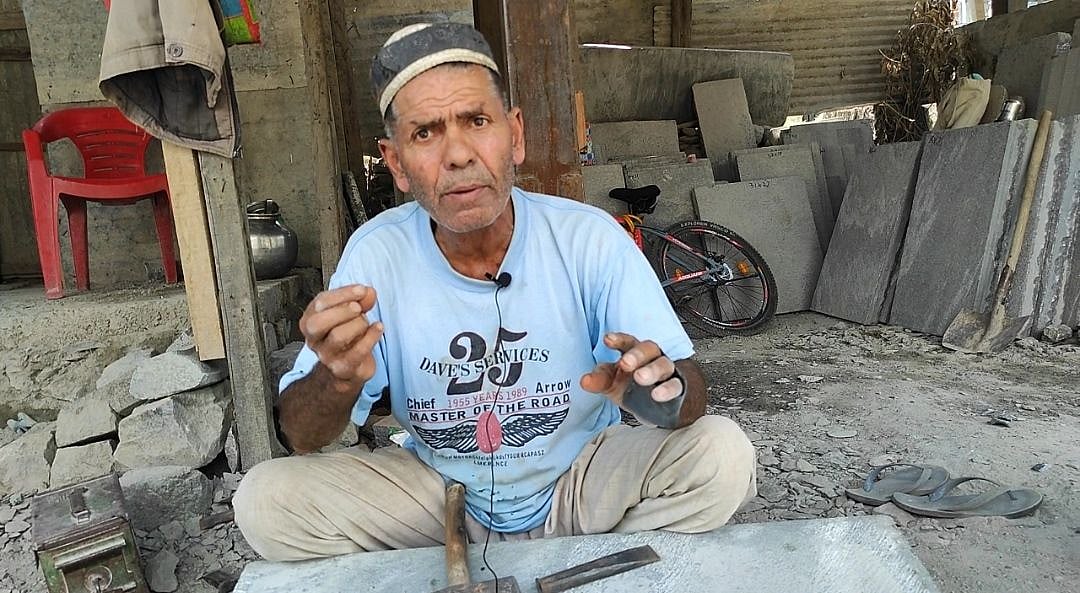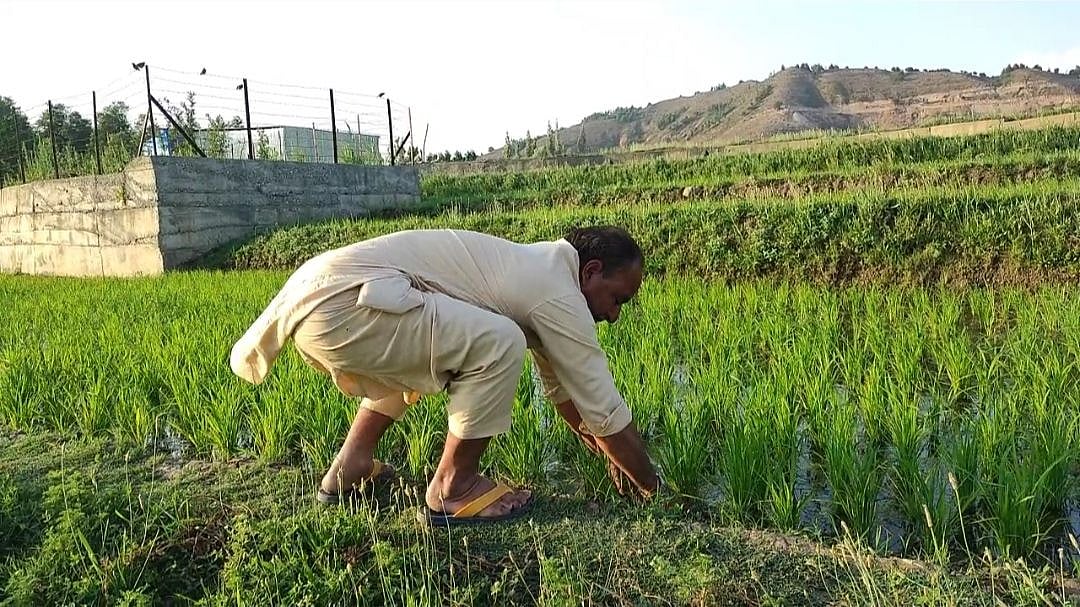Lockdown Effect: Craftsmen left in the lurch in Kashmir with no help from the state government
They defeated the virus but they have been devastated by lockdown, says Ghulam Ahmad Hajam, stone carver. All his savings and the jewellery of women in household are gone and the future looks bleak

They defeated the virus but they have been devastated by the lockdown, says Ghulam Ahmad Hajam, a stone carver. All his savings and the jewellery of the women in the household are all gone and the future looks bleak.
Memorial stones, Hamam stones, stones for minarets, mortars and pestles found in every Kashmiri kitchen, carved into memorable and intricate forms, sold near Pantha Chowk on the Srinagar-Jammu highway was a ubiquitous sight. Carving stones is easier said than done. It requires time, effort and skill that is acquired over decades. It requires patience, perseverance and imagination. Certainly not any less than other fields. Locally called ‘Sangtarash’ (Sang = stone; tarash = carver), their skill in calligraphy is outstanding.
The art of stone-carving was introduced in the 12th century, they claim, by visiting craftsmen from Persia. But while the art survived through centuries, this unorganised sector is not entitled to any welfare scheme of the government or loans and is languishing, they inform.

During the lockdown, they kept carving stones at home for sometime but there were no buyers. “Everyone was fighting his own battle of survival. Who would have bought the stones when survival was the priority,” he exclaims with a sigh.
Even before the Covid-19 lockdown, the strict curfew clamped in August 2019 in the wake of abrogation of Article 370 had hit them hard. In the Pantha Chowk area itself, there are 3,000 families which directly or indirectly depend on this trade. But surprisingly, they do not seem to have attracted much attention from government agencies.
Abdul Majid has a similar story to tell. Debts have piled up and they are no longer able to take provisions on credit. Worse, their skill is no longer in demand and picking up new skills after decades of honing and perfecting the same skill is far from easy. Stone carvers are not the only group left in the lurch. The familiar Kashmiri Shawl sellers, the ‘Pheriwalas’ who travelled far and wide in winter to various cities and sold shawls from door-to-door now find the doors closed. While most of them were confined due to restrictions, those who ventured out were turned away.

“Earlier, we were welcomed and received warmly but no longer,” confirms Mukhtar Abbas from Anantnag. Everybody is now a suspect, he adds sadly. His son, a graduate, dropped out because he couldn’t pay the fees to the university. He wanted to study for a MCA degree. Ghulam Hassan Shalla from DoruAnantnag, says fear of the virus is responsible.
The government does claim to have initiated welfare schemes for the unorganised sector. But evidence on the ground is dismal. “We will get help from the government only if we die an unnatural death,” says Shalla.
(This story was reported under the NFI fellowship for independent journalists)
(This article was first published in National Herald on Sunday.)
Follow us on: Facebook, Twitter, Google News, Instagram
Join our official telegram channel (@nationalherald) and stay updated with the latest headlines
Published: 18 Dec 2021, 10:55 AM
